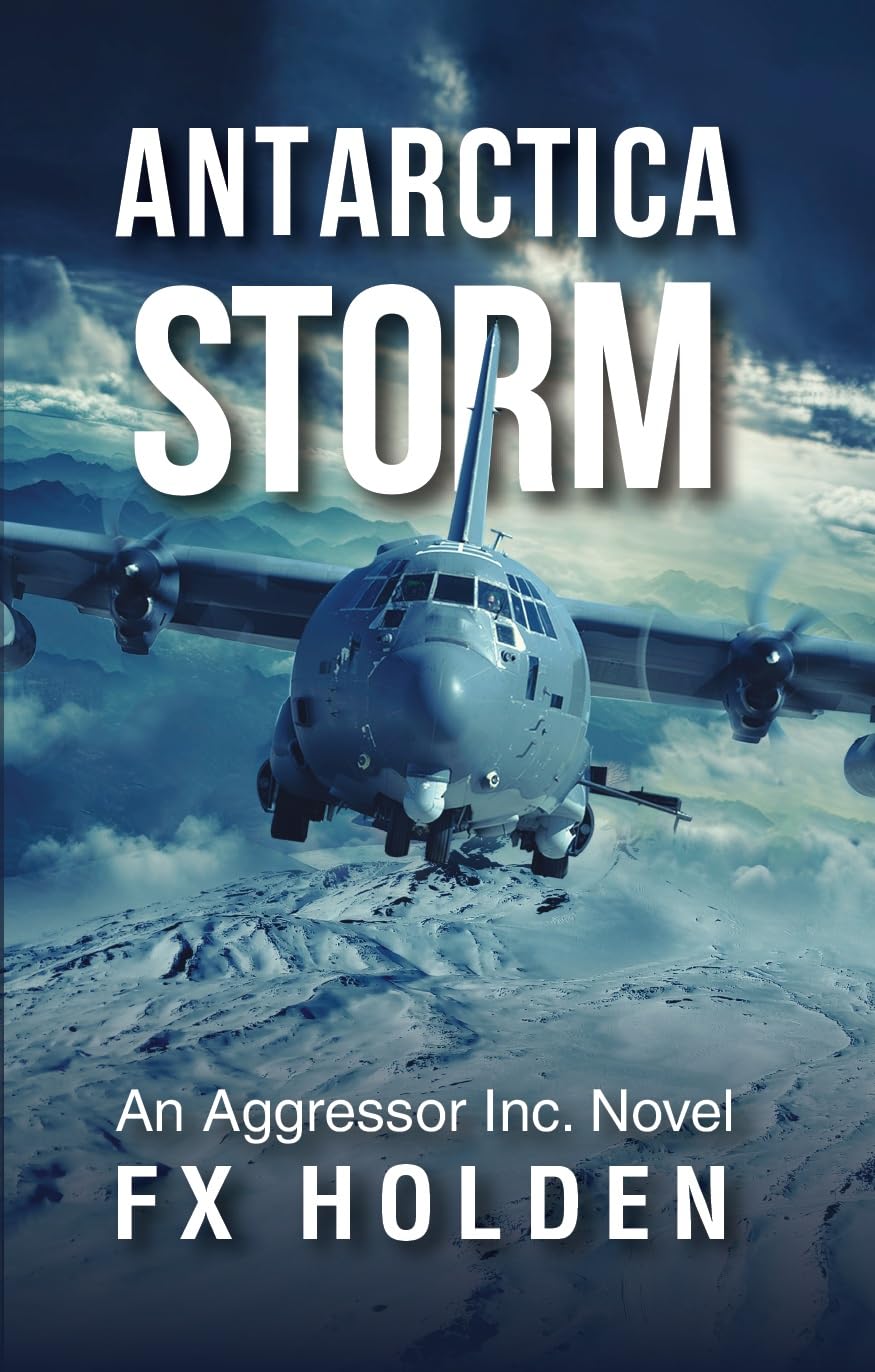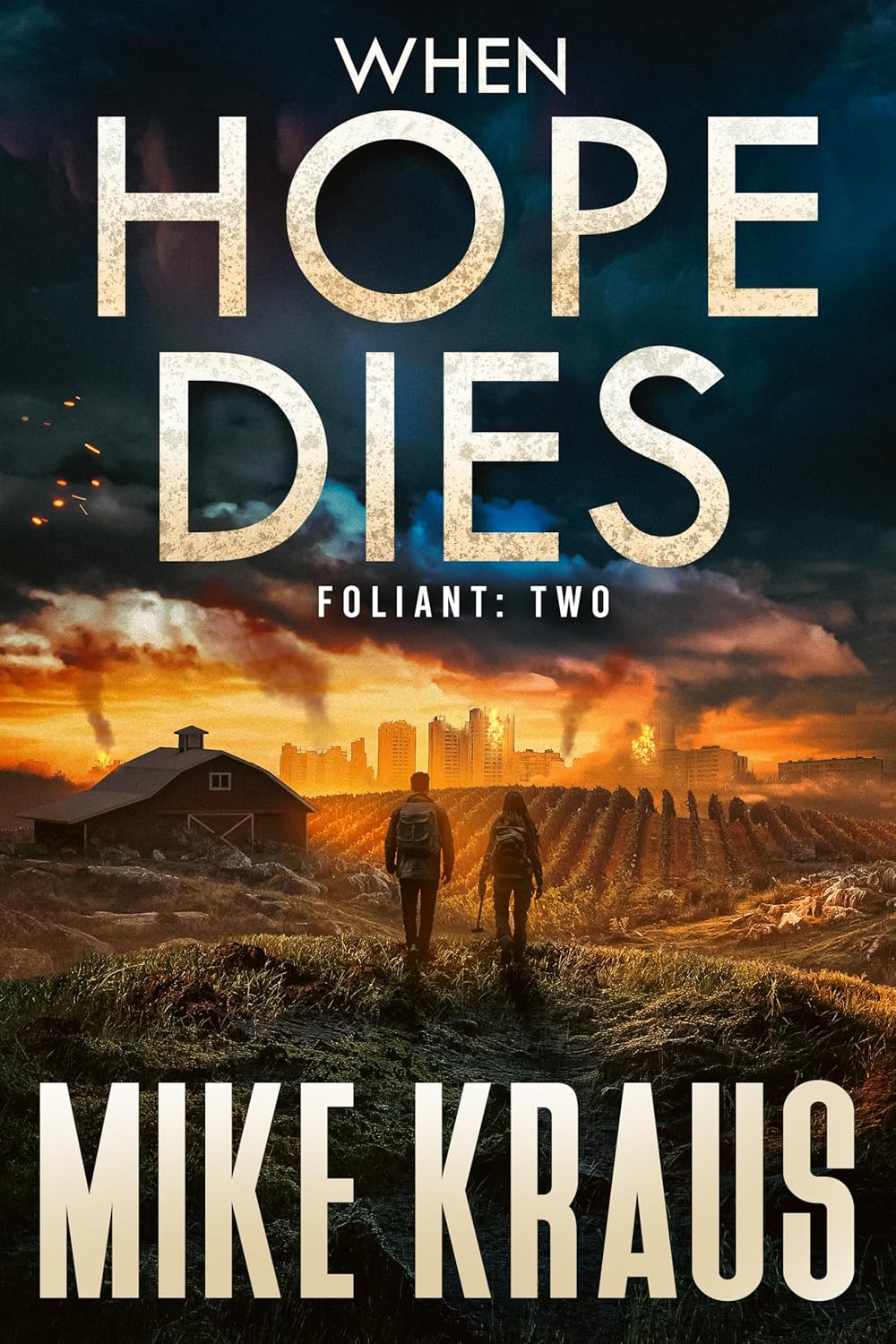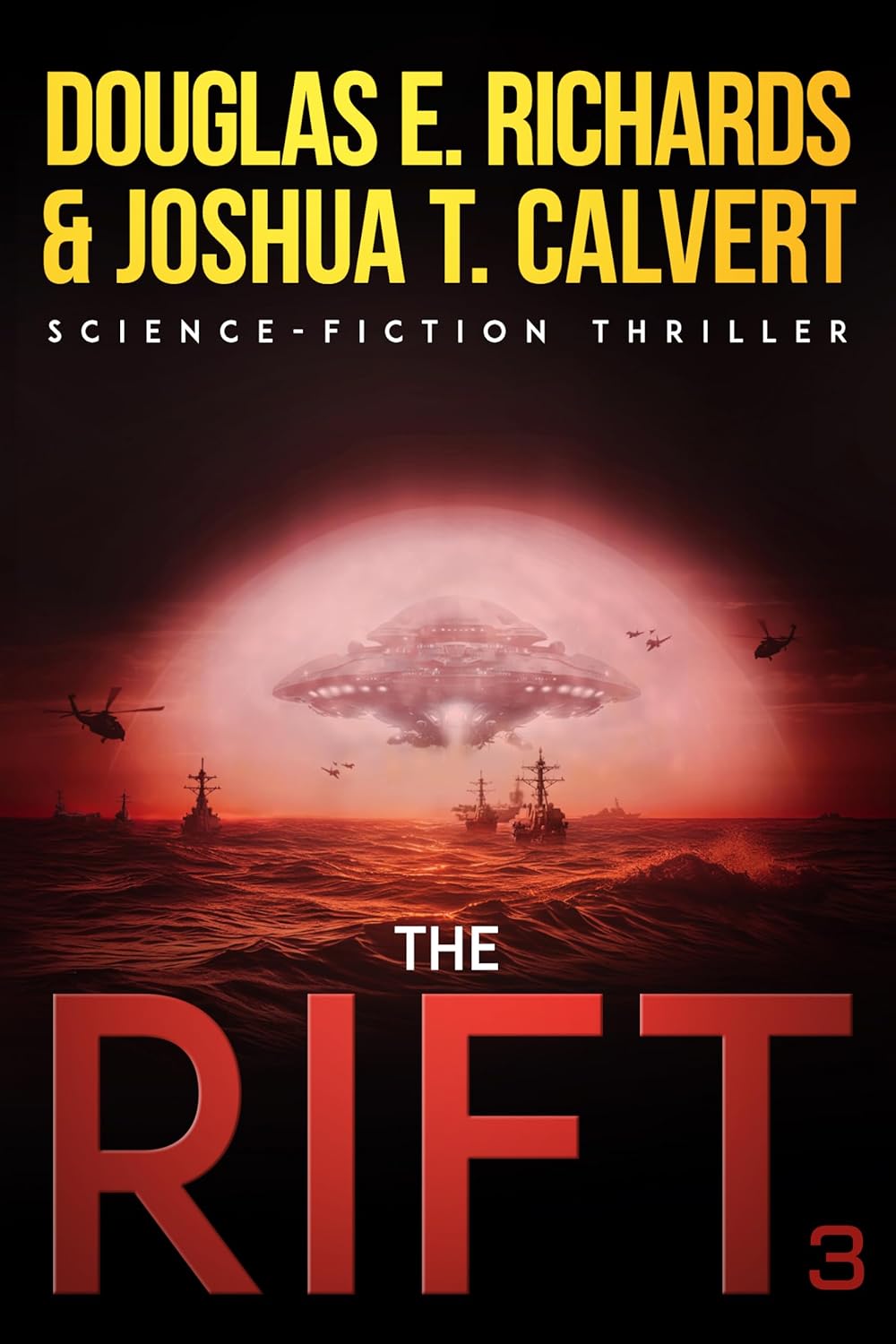Best-Selling Technothriller Novels in 2025
The technothriller genre continues to captivate readers in 2025, blending cutting-edge technological concepts with heart-pounding suspense in ways that feel increasingly prescient. This year's best-selling technothriller novels showcase authors who skillfully navigate the thin line between speculative fiction and our rapidly evolving reality. From artificial intelligence and virtual reality to quantum computing and bioengineering, these novels leverage today's scientific advancements to craft compelling narratives about tomorrow's possibilities—and dangers.
The most successful technothrillers of 2025 don't merely use technology as window dressing; they explore profound questions about humanity's relationship with innovation. How might virtual parenthood reshape our concept of family? What happens when parallel dimensions collide? Can we prevent catastrophic bioweapon attacks? These novels engage readers not just through adrenaline-fueled plots but through thought-provoking premises that linger long after the final page.
What Makes Technothrillers So Compelling
Technothrillers occupy a unique literary space where scientific fact and speculative fiction merge to create stories that feel both fantastical and eerily plausible. The genre's enduring appeal stems from its ability to extrapolate current technological trends into near-future scenarios that illuminate both the promise and peril of human innovation. Unlike traditional science fiction, which often projects centuries forward, technothrillers typically unfold in settings just beyond our present moment—close enough to recognize, yet altered in ways that challenge our assumptions about technology's role in society.
The best technothrillers balance technical authenticity with accessible storytelling, presenting complex scientific concepts through the lens of relatable human experiences. They tap into contemporary anxieties about technological dependency, surveillance, artificial intelligence, climate engineering, and genetic manipulation while delivering the visceral thrills of a fast-paced adventure. What sets apart truly exceptional works in this genre is their ability to make readers question not just "Could this happen?" but "What would I do if it did?" This combination of intellectual engagement and emotional investment explains why technothrillers continue to dominate bestseller lists, particularly in an era when yesterday's fictional technologies increasingly become today's headlines.
The Current Top 10 Best-Selling Technothrillers on Amazon
1. The Family Experiment: A Dark and Twisted Sci-Fi Thriller of Virtual Parenthood (Dark Future Book 3) by John Marrs
John Marrs delivers a haunting exploration of parenthood in an overpopulated, economically strained near-future with "The Family Experiment." Set in a UK where childrearing has become financially impossible for many, Marrs introduces a technological solution that feels disturbingly plausible: subscription-based virtual children accessed through VR headsets. The novel builds its tension around a reality TV competition called "The Substitute," where couples raise accelerated-growth virtual children for the chance to win either their digital offspring or a real baby. The premise brilliantly merges our current obsessions with reality television and digital experiences into a dystopian concept that questions the very definition of family.
What distinguishes "The Family Experiment" from other technothrillers is Marrs's unflinching examination of the psychological and ethical ramifications of commercializing parenthood. By setting the novel in the same universe as his previous bestsellers "The One" and "The Marriage Act," Marrs builds on an already richly developed world where technology has fundamentally altered human relationships. The novel's greatest strength lies in its ability to make readers question whether technological solutions to biological challenges ultimately enhance humanity or diminish it. With its combination of emotional depth and technological speculation, "The Family Experiment" exemplifies the best of contemporary technothriller fiction.
Buy Now2. Pines: Wayward Pines: 1 (The Wayward Pines Trilogy) by Blake Crouch
Blake Crouch's "Pines," the first installment in his Wayward Pines trilogy, continues to captivate readers with its perfect blend of mystery, horror, and speculative technology. The novel follows Secret Service agent Ethan Burke who arrives in the idyllic town of Wayward Pines, Idaho, to investigate the disappearance of two federal agents. After a violent accident, Ethan awakens in a hospital without identification or means of communication, setting the stage for a deeply unsettling journey through a community where nothing is as it seems. The electrified fences surrounding the town initially suggest imprisonment, but Crouch masterfully subverts expectations by revealing a far more complex technological reality underlying the seemingly bucolic setting.
What elevates "Pines" above standard thriller fare is Crouch's ability to layer philosophical questions about identity and reality within an expertly paced narrative. As Ethan struggles to make sense of a town where residents seem to be performing roles rather than living authentic lives, readers are drawn into an existential mystery that gradually reveals itself as a technothriller of the highest order. The novel's enduring popularity stems from its seamless integration of technological speculation with primal fears about isolation and manipulation. By turns claustrophobic and mind-expanding, "Pines" exemplifies how the best technothrillers can transform a simple premise—a man trapped in a strange town—into a profound exploration of humanity's relationship with technology and truth.
Buy Now3. Antarctica STORM: An Aggressor Inc. Thriller by FX Holden
FX Holden delivers a masterclass in geopolitical technothriller writing with "Antarctica STORM," which explores the terrifying potential of next-generation power technology hidden beneath the Antarctic ice. The novel centers on physicist David Lau and his team working at the remote Concordia Station to develop a revolutionary energy source so potent that a fraction of an ounce could level Manhattan. When private security contractor Karen 'Bunny' O'Hare detects an unexplained radiation spike over the continent, the stage is set for a high-stakes international confrontation involving Chinese and Russian research teams converging on the same isolated location. Holden's meticulous attention to technical detail creates a chillingly plausible scenario where cutting-edge science becomes the centerpiece of renewed great power competition.
What distinguishes "Antarctica STORM" from other technothrillers is its brilliant use of setting as a character in its own right. The brutal environment of Antarctica—with its extreme isolation, deadly temperatures, and unforgiving terrain—amplifies the tension while creating natural obstacles that complicate every aspect of the unfolding crisis. Holden's background knowledge of military operations shines through in authentic action sequences, while his exploration of how transformative technologies can trigger geopolitical instability feels ripped from tomorrow's headlines. The novel's greatest strength is its ability to present complex technological concepts within a framework of human drama, where national interests, personal ambitions, and scientific ethics collide with potentially catastrophic consequences.
Buy Now4. The Rift: A Science-Fiction Thriller by Douglas E. Richards
In this remarkable collaboration between bestselling authors Douglas E. Richards and Joshua T. Calvert, "The Rift" delivers a mind-bending exploration of parallel dimensions and the catastrophic consequences of their collision. The novel begins with a mysterious black sphere discovered in Antarctica before jumping decades forward to a present where reality itself begins to fracture—skyscrapers vanish, impossible planes crash, and artifacts with inexplicable properties appear worldwide. At the center of this interdimensional crisis stands Dr. James Barron, a scientist haunted by his past who becomes humanity's reluctant defender against an invasion from a parallel Earth. The authors excel at creating a scientific framework for interdimensional travel that feels grounded in theoretical physics while stretching into speculative territory.
What elevates "The Rift" above standard dimension-hopping fare is its meticulous attention to the logical consequences of breaching reality barriers. Rather than using parallel worlds merely as a plot device, Richards and Calvert explore the scientific, political, and existential implications of discovering we are not alone in the multiverse. The novel's greatest strength lies in its balance of large-scale catastrophe with intimate human drama, as Barron's personal journey intersects with civilization-threatening events. By grounding fantastical concepts in relatable characters and recognizable settings, "The Rift" exemplifies how the best technothrillers can make even the most outlandish premises feel not just possible, but inevitable—leaving readers both intellectually stimulated and thoroughly entertained.
Buy Now5. When Hope Dies - FOLIANT TWO: (A Post-Apocalyptic Thriller) by Mike Kraus
In this gripping second installment of the FOLIANT series, Mike Kraus continues his exploration of a devastated America following a catastrophic nerve agent attack that has killed tens of millions. "When Hope Dies" follows two primary narratives: the O'Brian family trapped in the urban nightmare of Los Angeles, and the Tills family struggling to defend their Oregon vineyard from increasing threats as social order collapses. What distinguishes Kraus's approach to the post-apocalyptic technothriller is his meticulous attention to the cascade of technological and social failures that follow a targeted attack on national infrastructure. Rather than focusing solely on the initial catastrophe, Kraus examines how modern society's complex interdependencies become liabilities when critical systems fail.
The novel's greatest strength lies in its balance between technological speculation and human drama. Kraus doesn't just explore what weapons could devastate a nation; he examines how survivors adapt when technologies they've taken for granted are suddenly unavailable. Through the contrasting experiences of urban and rural survivors, readers witness different aspects of societal collapse—from the immediate dangers of lawless cities to the strategic challenges of defending isolated resources. The novel's exploration of how a technically sophisticated attack continues to evolve and produce secondary effects long after initial deployment makes it particularly chilling. By grounding his apocalyptic scenario in plausible technology and human psychology, Kraus creates a technothriller that feels disturbingly possible in today's world of asymmetric threats and technological vulnerabilities.
Buy Now6. The Rift 3 by Douglas E. Richards
Douglas E. Richards and Joshua T. Calvert deliver a spectacular conclusion to their interdimensional trilogy with "The Rift 3," which finds protagonists James, Hannah, and Wolf reunited on an alternate Earth where the Roman Empire never fell. As the fabric between dimensions continues to tear, unleashing catastrophic anomalous storms and creating rifts large enough for warships to pass through, the trio faces an impossible challenge: repelling a technologically superior force intent on conquest while finding a way to repair the fundamental damage to reality itself. The authors excel at integrating theoretical physics with pulse-pounding action, creating a technothriller that satisfies on both intellectual and visceral levels.
What distinguishes this final installment is its skillful resolution of the complex narrative threads established in previous volumes while raising the stakes to their ultimate level. Rather than focusing solely on the interdimensional war, Richards and Calvert explore the fascinating cultural and technological divergences of a world where Rome's scientific advancements continued uninterrupted for centuries. The novel's greatest strength lies in its exploration of how different historical trajectories might produce radically different technological outcomes—a theme that adds depth to what could otherwise be a straightforward invasion narrative. With its combination of mind-bending concepts, relentless pacing, and emotionally resonant character arcs, "The Rift 3" exemplifies how the best technothrillers can deliver satisfying conclusions that feel both surprising and inevitable.
Buy Now7. The Rift 2 by Douglas E. Richards
The second installment in Douglas E. Richards and Joshua T. Calvert's Rift trilogy expands on the interdimensional crisis introduced in the first book, taking the concept into even more complex territory. After narrowly preventing a catastrophic invasion, Dr. James Barron now faces multiple threats: growing rifts in the fabric of reality, anomalous superstorms, and competing conspiracies that span dimensions. At the heart of the narrative is Barron's quest to rescue Special Agent Hannah Walker, who vanished through a portal with the brilliant but treacherous scientist Linus. The authors masterfully balance the large-scale implications of interdimensional breaches with a deeply personal quest, creating a technothriller that engages both the mind and heart.
What distinguishes "The Rift 2" from many middle trilogy entries is its refusal to merely bridge the gap between introduction and conclusion. Instead, Richards and Calvert use this installment to deepen the scientific foundations of their premise while dramatically expanding its scope. The mysterious nexus discovered at Camp David—described as floating like a black hole—provides a compelling central mystery that drives both the plot and the technological speculation. By grounding fantastical interdimensional concepts in recognizable settings like Camp David, the authors create a sense of verisimilitude that makes the extraordinary feel plausible. The novel exemplifies how effective technothrillers can take speculative science to extreme conclusions while maintaining internal consistency and emotional resonance.
Buy Now8. Departure by A. G. Riddle
A.G. Riddle's "Departure" continues to captivate readers with its ingenious blend of time travel, alternate reality, and technological speculation. The novel begins with a deceptively familiar disaster scenario—a plane crash—before evolving into something far more complex and thought-provoking. When Flight 305 from New York to London crash-lands in rural England, the survivors soon discover they've entered a world distinctly different from the one they left. Five passengers emerge as central to the mystery: writer Harper Lane, venture capitalist Nick Stone, genetic researcher Sabrina Schröder, computer scientist Yul Tan, and Grayson Shaw, a billionaire's son. Each holds pieces of a puzzle that, when assembled, reveals a conspiracy spanning time itself.
What elevates "Departure" above standard plane crash narratives is Riddle's sophisticated exploration of causality, technological determinism, and the ethical implications of altering history. Rather than using time travel merely as a plot device, Riddle examines how technological choices in one timeline might cascade into radically different futures. The novel's strength lies in its balance of speculative technology with deeply human motivations—ambition, love, redemption—that transcend temporal boundaries. Through the evolving relationship between Harper and Nick, readers experience the personal stakes behind world-changing decisions. By grounding extraordinary concepts in recognizable human experiences, "Departure" exemplifies how the best technothrillers can make the implausible feel not only possible but emotionally resonant.
Buy Now9. The Quiet After - FOLIANT ONE: (A Post-Apocalyptic Thriller) by Mike Kraus
Mike Kraus launches his ambitious FOLIANT series with "The Quiet After," a technothriller that depicts a frighteningly plausible catastrophe: a coordinated nerve agent attack across major American cities that kills tens of millions within hours. The novel follows three primary narrative threads that illuminate different aspects of the unfolding crisis: the vacationing O'Brian family caught in Los Angeles during the attack, the Tills family at their relatively isolated Oregon vineyard, and those responsible for coordinating the national response. Kraus excels at creating a technological disaster that feels disturbingly possible given current geopolitical tensions and advances in chemical weapons development.
What distinguishes "The Quiet After" from standard apocalyptic fare is Kraus's meticulous attention to the cascading technological failures that follow the initial attack. Rather than focusing solely on survival action, the novel examines how modern infrastructure collapses when key personnel and systems are suddenly eliminated. Through contrasting urban and rural experiences, readers gain insight into different vulnerabilities and resilience factors across American society. The novel's greatest strength is its refusal to simplify either the technology behind the attacks or the human responses to them—characters react with believable mixtures of heroism, panic, selfishness, and adaptation. By grounding his apocalyptic scenario in plausible science and authentic human psychology, Kraus creates a technothriller that reads less like fiction and more like a chilling preview of what could happen if technological safeguards fail.
Buy Now10. The Secret of Secrets: A Novel (Robert Langdon Book 6) by Dan Brown
Dan Brown returns with his signature blend of historical mystery and cutting-edge science in "The Secret of Secrets," the sixth installment in his globally successful Robert Langdon series. This time, the Harvard symbologist travels to Prague to attend a lecture by noetic scientist Katherine Solomon—with whom he has recently begun a romantic relationship—only to be thrust into chaos when she disappears along with her groundbreaking manuscript on human consciousness. Brown masterfully incorporates Prague's ancient mythology and architectural wonders as backdrops for a thoroughly modern technothriller that explores the frontiers of consciousness research and its potential to disrupt centuries of established belief systems.
What distinguishes "The Secret of Secrets" from previous Langdon adventures is its deep dive into noetic science—the study of how consciousness interacts with the physical world—and its potential technological applications. Brown balances his trademark historical puzzles with speculative but scientifically-grounded exploration of how consciousness technology might transform human existence. The novel's greatest strength lies in its ability to weave together ancient mystical traditions and futuristic scientific research into a cohesive narrative that questions the very nature of mind and reality. By expanding the action beyond Prague to London and New York, Brown creates a global stage for examining how consciousness technology might be weaponized or harnessed for transformation. With its characteristic blend of intellectual stimulation and propulsive plotting, "The Secret of Secrets" demonstrates why Brown remains a dominant force in the technothriller genre.
Buy Now








